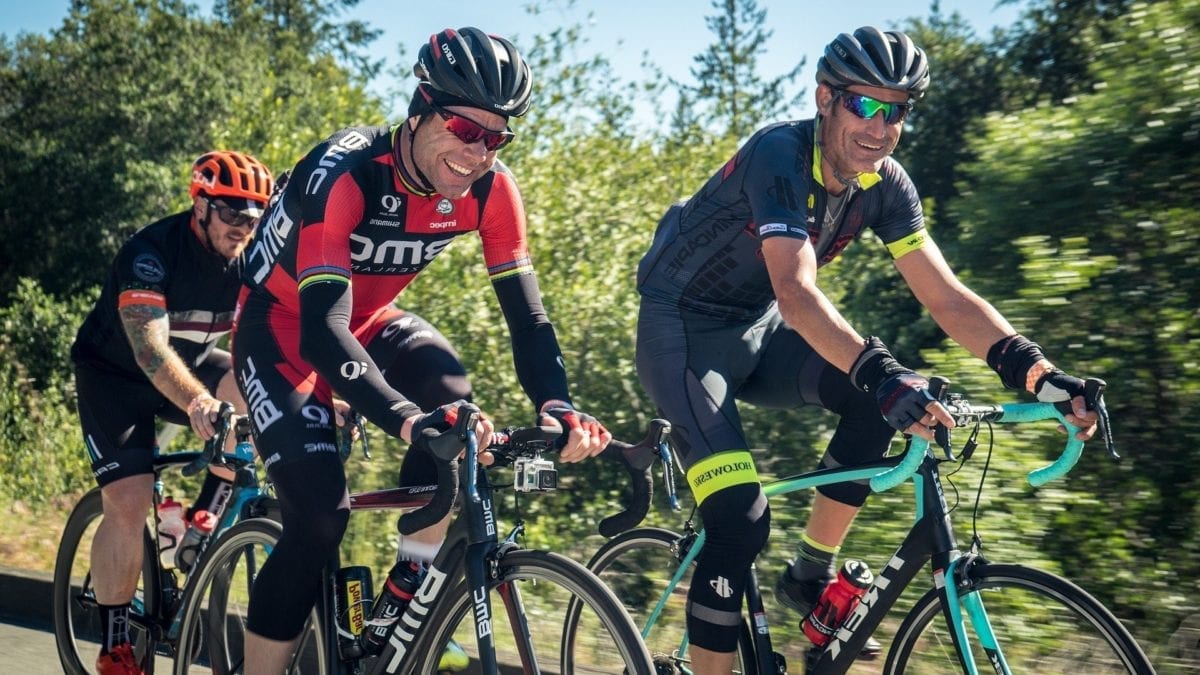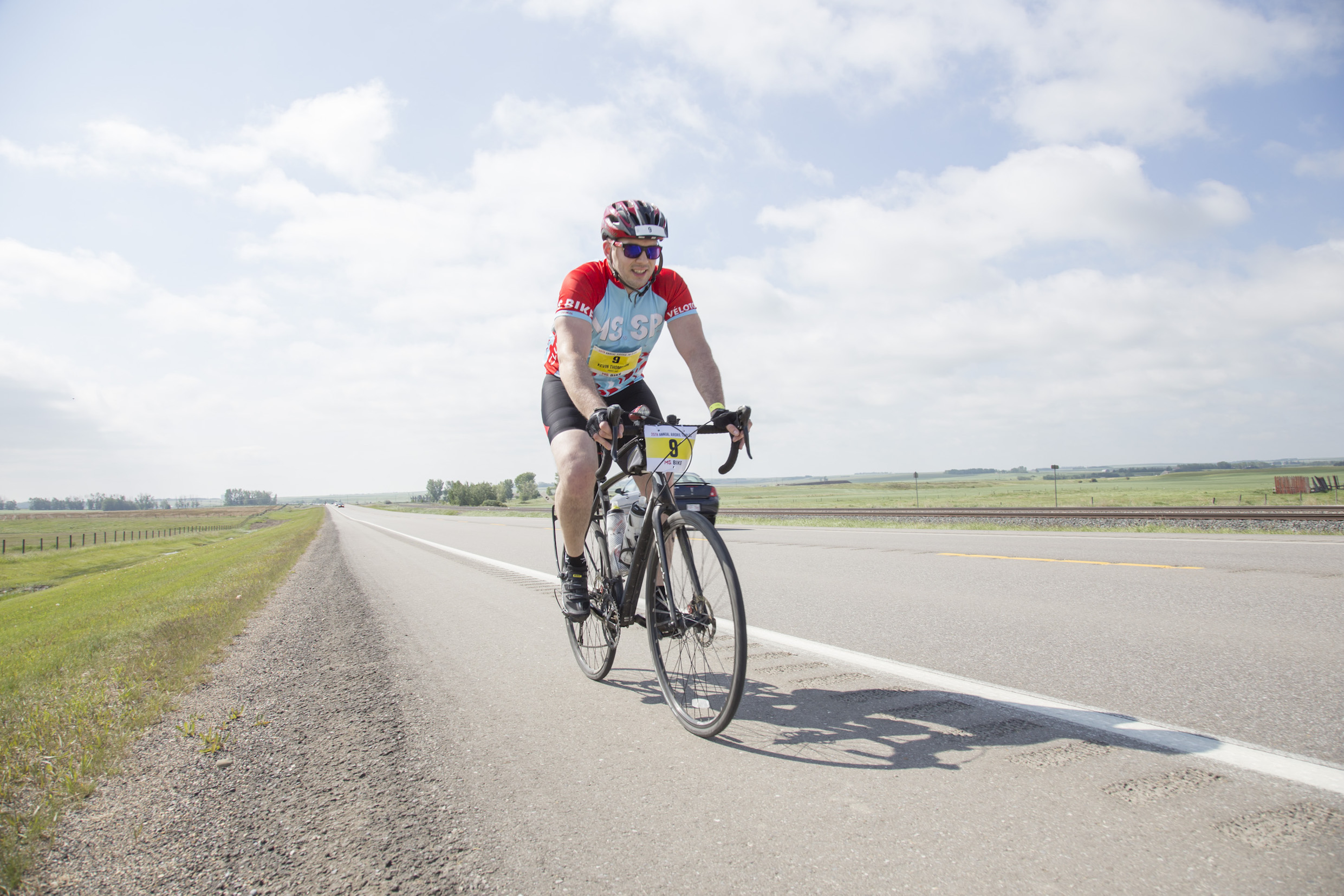Virtual MS Bike is the perfect solo challenge for 2020
Push yourself on a ride for an important cause
 Photo by:
MS Bike
Photo by:
MS Bike
Social isolation, the lack of events and our desire for some kind of structure has left many cyclists in 2020 searching for a way to maintain motivation—a goal, a direction or a challenge. For Angie Coulombe, the conditions may be slightly different, but she intends to challenge herself the same way she has for the last two decades. “For the past 22 years, rain or shine, I’ve never missed MS Bike,” she says, and this year is no exception.
An annual tradition
Every year, from June to September, the Multiple Sclerosis Society of Canada and the MS community come together to hold events across the country raising awareness for multiple sclerosis and collecting funds through MS Bike. More than 8,000 cyclists participate annually in MS Bike events . The event has existed for over 30 years and, though the 21 bike tours across Canada won’t have official in-person gatherings this year, participants will still challenge themselves to raise funds, ride hard and support those affected by MS.
MS Bike events are structured so that cyclists of any level can participate. 28 years ago Stew Hutchings saw a pamphlet for MS Bike and decided to try it out on his CCM mountain bike from Canadian Tire. He loved the experience and came back the next year to ride again (and the year after that, and the following year…) Soon enough, as a product of his involvement with MS Bike, he found himself fully committed to cycling life—helping new participants train for MS Bike and working as president of the Devon Bicycle Association. “I have a road bike, a mountain bike, a CX bike,” he chuckles, “It was always the n+1.”
Jeff Matthews, the captain of Dillon Consulting’s MS Bike team, says that MS Bike is a healthy activity for new riders and a great method of team building. “If you can ride 15 km you can do this ride,” he says, noting that there are many fueling stops along the way. That being said, his large team regularly breaks into groups during training rides, as the faster riders enjoy training harder for the event and riding more competitively.
Virtual MS Bike
This year riders can choose the date, distance and location of the ride. They can commit to riding a local MS Bike route on their own or take on a specific challenge. The challenges vary in difficulty, from beginner rides all the way to riding 7,117km—the distance across Canada. Solo rides are gaining popularity as a safe means of pushing yourself during the pandemic and, if the trajectory of Everesting is any indication, they will only get more popular as the summer goes on.
Virtual MS Bike is an opportunity for cyclists to target a training goal. Though there won’t be a physical gathering this year, the event will still have its annual kickoff on Saturday, July 25, 12pm ET. Cyclists and the MS community across the country will connect virtually to rally with the tens of thousands of Canadians affected by MS and hear some of the stories of those who live with MS.
MS and COVID-19
In Canada, approximately 1 of every 385 people lives with MS, and on average, 11 people will be diagnosed with MS every day. The unpredictable and episodic yet progressive nature of MS makes it challenging to maintain financial security and navigate health and community support systems including access to treatments, care, and appropriate housing. COVID-19 only intensifies these circumstances and adds stress to both physical and mental health for an at-risk population.
Canada has one of the highest rates of MS in the world, but it is also home to some of the world’s leading MS researchers. Funds raised for MS Bike go towards research in a variety of areas, including causes and risk factors, symptom management, mechanisms of disease, imaging, wellness, and treatments.
Riding with a purpose
The pandemic has left many of us looking for a cause to support and a way to connect with others. For Hutchings, MS Bike has given him a sense of purpose and community in his retirement. Over the years he’s had the chance to visit some of the researchers who work on MS treatments. “I’ve seen so much change in how MS is treated and the way they support patients,” says Hutchings. “I’m really impressed with the research.”
Hutchings and Coulombe both say once you get them talking about MS Bike, it’s hard to get them to stop. Coulombe was sad that she wouldn’t be able to host the fundraising pub quiz she puts on with her daughter every year—until she realized she could still run it virtually. The event was a huge success. Teams paid $20 for entry and friends got to (virtually) see each other for the first time in a while.
Her creative solution is indicative of the drive seen in those who participate in MS Bike. Riders come back year after year for a variety of reasons—the event experience, the challenge or the community that they develop. In most cases it is a combination of these things and above all the support for all Canadians affected by MS.
“MS won’t stop because of what’s going on,” says Coulombe, “and neither will we!”
Register for Virtual MS Bike online and choose what kind of ride you’ll do to push yourself in support of Canadians affected by MS.


